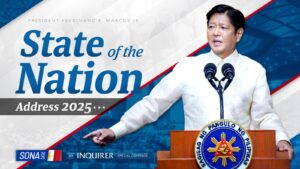The head of the Commission on Audit on Wednesday said that while the agency has uncovered something during its audit of the transactions of state-owned Development Bank of the Philippines, its audit was neither complete nor conclusive.
CoA Chairperson Grace Tan told reporters at the sidelines of a forum held by the Financial Executives Institute of the Philippines that the agency’s audit on the DBP would not be conclusive until the management has given its side on the issue. She added that the CoA was still in the process of auditing questioned transactions on the government’s buyback of the Metro Railway Transit 3.
The MRT 3 buyback, which also involved the DBP and Land Bank of the Philippines, was also among the transactions undertaken during the Arroyo administration that are now being questioned by allies of President Aquino.
“What was issued to DBP was only an audited observation memo (AOM), which is still the subject of discussions between the auditors and management. Management is supposed to explain its side,” Tan said.
“We don’t complete, we don’t conclude an audit without getting the side of management. Now if we think they can’t explain it well, we’ll stick to what’s there. On the other hand, there could be other things we failed to see so there’s always room for that,” Tan said.
The DBP’s previous management led by former president Reynaldo David has been accused of extending “behest” loans to former Trade Minister Roberto V. Ongpin for the latter’s acquisition of shares in Philex Mining.
In the course of any audit, Tan said CoA would tend to uncover many things. “Management is supposed to make a comment and clarify for us and sit down with us. That’s still in process. Until it has gone through that process, we won’t issue an audit report,” she said.
Asked whether the CoA had seen something questionable, Tan said: “[There is] but that’s the side of CoA. There are always two sides in every audit.”
When asked which “management” should explain the issues to finalize the audit report, Tan said it was the incumbent management. “Even if there’s a change in people, the same documents are there.”
During the forum, Tan said CoA would henceforth work closely with the Ombudsman to improve its batting average on cases submitted for prosecution.
“We want results. We come up with findings one after the other and all details are there, but the question is, so what? What do we do with what we’ve found? How are we going to handle this?” Tan said.
There are so far 34 cases referred by the CoA to the Ombudsman, including the issue on the fertilizer scam. She said many cases of corruption were undocumented such that whistle-blowers would definitely play a crucial role.
Tan has vowed to audit government institutions based on merits and the governing laws. “We should not allow ourselves to be politicized.”
Another example, Tan noted, was the use of Malampaya funds. While there were many government agencies receiving Malampaya funds, she said there was no consolidated audit on whether the funds were efficiently disbursed. Another example was the conditional cash transfer scheme, which involved billions of pesos, she noted.—Doris C. Dumlao


